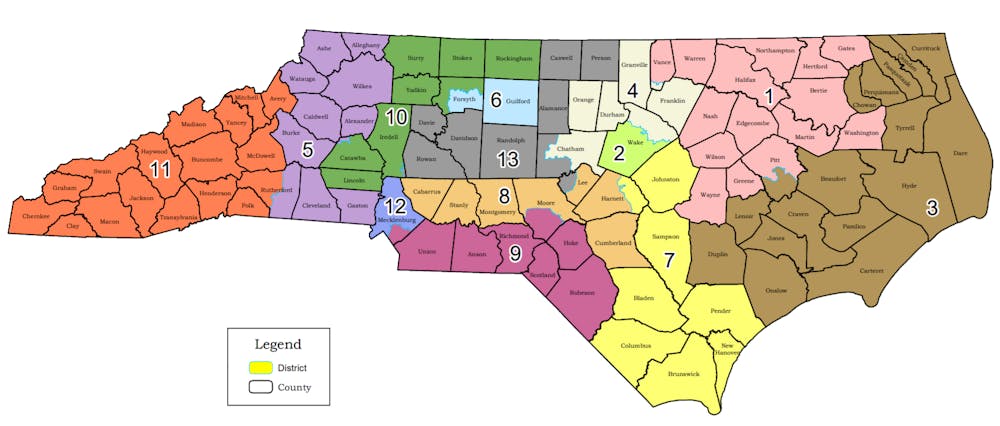The Superior Court of Wake County indefinitely suspended the filing period for candidates seeking a seat in the U.S. House of Representatives on Wednesday.
The decision was made by Judges Joseph Crosswhite, Alma Hinton and Paul Ridgeway after a week of controversy surrounding congressional districts and gerrymandering ahead of the 2020 election.
On Nov. 15, North Carolina lawmakers approved a new map of congressional districts to be used in the 2020 election. The bill passed along party lines in the N.C. House on Nov. 14 and the N.C. Senate on Nov. 15 — it was then sent to the courts for approval.
The new map does not change the districts of current incumbents — all current representatives will continue to represent the same number district, even if the borders of that region have changed. While the incumbent members consist of 10 Republicans and three Democrats, as of Nov. 16, nearly 2.5 million voters are registered Democrats and just over 2 million are registered Republicans in North Carolina.
“The Court suggested the General Assembly proceed in a manner that ensured full transparency and allowed for bipartisan participation and consensus that would result in congressional districts more likely to achieve the constitutional objective of allowing for those elections to be conducted more freely and honestly to ascertain, fairly and truthfully, the will of the people,” Wednesday’s decision states.
N.C. Rep. Verla Insko, D-District 56, representing Orange County, said the redistricting process was a joint effort between the House and the Senate, and data regarding voter registration or race was not considered. Rather, she said, the main focuses were population, communities of interest and keeping counties whole.
In the new map, 12 counties are split into two congressional districts. The legislature also used the Roeck Test: a measure of how compact districts are. With a maximum score of 1, which indicates the most compact districts, the new map scored an average of 0.37.
Bob Phillips, executive director of Common Cause NC, also noted that the restriction from using voter data in the redistricting process is due to the Common Cause v. Lewis decision. The Lewis case also required that the maps be redrawn in public hearings without using the original unconstitutional districts as a starting point.




